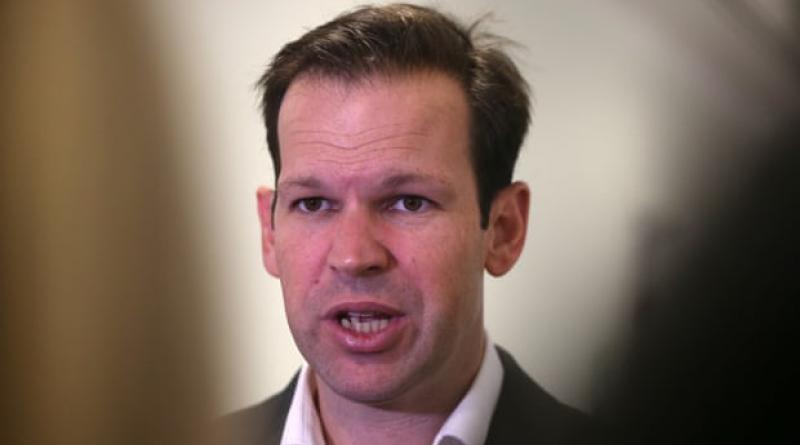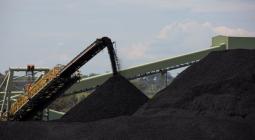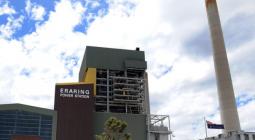Nationals coal push disrupts Scott Morrison's climate policy pivot.

Coalition tensions in evidence as growing chorus of Nationals call for new coal plants after PM sends zero emissions signal.
The Nationals are continuing to agitate for new investments in coal, cutting across Scott Morrison’s ongoing efforts to telegraph a significant pivot on climate policy.
After the prime minister used a scene-setting speech at the National Press Club on Monday to declare he wanted Australia to get to net zero emissions “as soon as possible” and “preferably by 2050” – Morrison’s strongest formulation to date – Nationals in the Senate issued a joint statement declaring Australia needed to build “modern coal-fired power stations” to generate affordable, reliable energy.
The former resources minister and Queensland senator Matt Canavan, the deputy Senate leader of the Nationals, said the government needed to get behind a new plant in Collinsville.
A new high-efficiency, low-emission coal-fired plant at Collinsville would create new regional jobs and a reliable source of low-emission energy,” Canavan said in the joint statement. “This is what Australia needs right now.”
The Nationals Senate leader and former sport minister, Bridget McKenzie, echoed that sentiment, saying “affordable, reliable power” including “modern coal fired power stations” would support job-creating industries in the regions.
The New South Wales senator Perin Davey said: “Using our world’s-best and cleanest thermal coal to power Australian manufacturing makes sense, and that coal comes from the Hunter.”
The prime minister’s language about the Coalition adopting a target of net zero emissions by 2050 has warmed considerably since the election of Joe Biden to the White House and Morrison’s comments about the target on Monday, while qualified, were warmer again, giving heart to Liberals who believe the government needs to shift.
Given many Nationals will strongly resist a firm commitment on net zero, Morrison has been arguing the looming transition to low emissions will be driven by technology rather than policies that increase energy prices or “tax” heavy industry – a line that gets repeated as a point of contrast with the government’s political opponents even though no major party is advocating a carbon tax.
Morrison has attempted to decouple the government from underwriting new coal projects by talking up a “gas-led recovery” from the economic shock created by the pandemic and by promoting future job opportunities in the regions associated with a burgeoning hydrogen industry.
He has also argued the government will not sign on to a mid-century net zero pledge until it can outline a roadmap for getting there.
Labor’s newly-appointed climate change spokesperson, Chris Bowen, continued the party’s outreach to mining communities in a television interview on Tuesday evening, arguing political leaders needed to be upfront with workers about the economic transition.
“My message to coal workers and to coalmining communities around Australia is that coalmining is good and noble work and our economy has, in many senses, been built on it,” Bowen told the ABC’s 7.30 program.
“It’s been dangerous and dirty work for many years, but the world is changing and we do need to be honest about that.”
Bowen said even though Australia would continue to export coal for “many years” to come, it was important to recognise coalmining communities would come under pressure.
He argued the choice was between a government that “shrugs its shoulders and says let the market rip” or a government that says “we will invest in communities, we will invest in individuals and help you through that change”.
Bowen – who replaced Mark Butler as climate spokesperson in Anthony Albanese’s reshuffle last week – said Australia could create thousands of jobs with “a pro-investment, pro-jobs climate change policy”.
Bowen told Guardian Australia last week that the Liberals had “weaponised climate change quite destructively as an anti-jobs message” so he saw his key task as winning the debate that good climate policy was also good for jobs and the economy.
Labor has yet to commit to a specific medium-term emissions reduction target, but has committed to net zero by 2050 and says it will outline a “roadmap” to get there before the election.
2 February 2021
The Guardian





